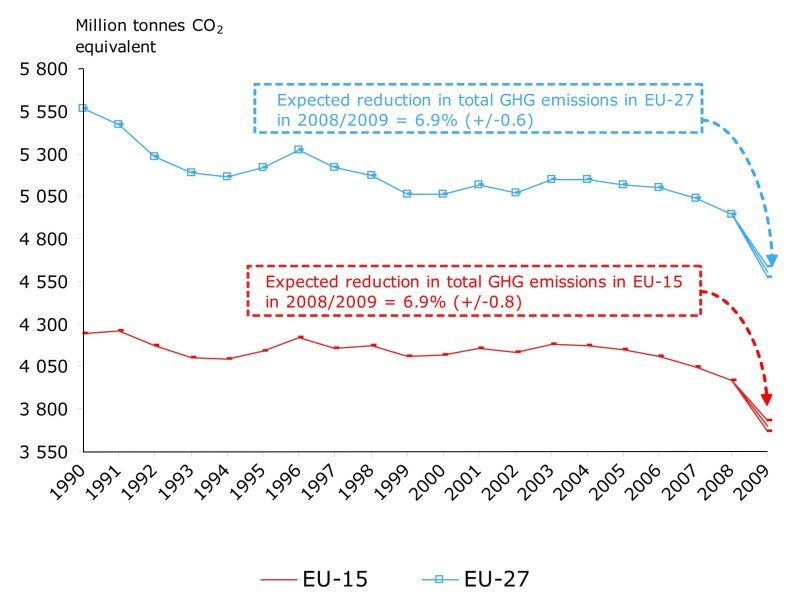
According to an estimate issued by the European Environment Agency’s (EEA), EU-27 and EU-15 greenhouse gas emissions both decreased by 6.9 % in 2009 compared to 2008.
That means that the EU-27’s 2009 emissions stand approximately 17.3 % below the 1990 level, making them very close to the EU’s target of cutting emissions 20% by 2020.
A 12.7% reduction in coal use was the main driver of greenhouse gas emission volume in Europe while overall fossil fuel consumption dropped by 5.5%. Slower activity in highly polluting industries such as cement chemical, iron and steel also played an important role. Conversely, use of renewable energy grew by 8.3%.
The report warns that an economic recovery may result in higher emissions in 2010, or at least not-so-fast emission cuts. The data for 2010 will be published in 2011. Under the Kyoto Protocol, the EU-15 has a common commitment to reduce emissions on average by 8 % between 2008 and 2012 compared to emissions in the ‘base year’.
The base-year emissions for the EU-15 have been fixed to 4 265.5 million tonnes CO2 equivalent. The EU-27 does not have a common target under the Kyoto Protocol and does not have an applicable base year against which to compare emission changes. However, emission changes compared to 1990 are applicable to the EU-27 as it has made a unilateral commitment to achieve at least a 20 % reduction of greenhouse gas emissions by 2020 compared to 1990.





